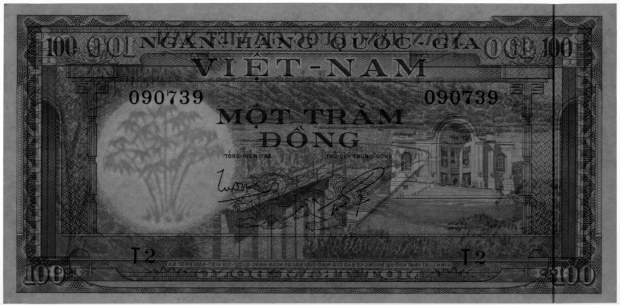South Vietnam 100 Dong 1960
Face:
Opera House in Saigon; denomination;Text:
NGÂN-HÀNG QUỐC-GIA VIỆT-NAM = National Bank of Vietnam;MỘT TRĂM ĐỒNG = One hundred dong;
TỔNG-KIỂM-TRA = Inspector General
[signature: Nguyễn Văn Dõng];
THỦ-QUỸ TRUNG-ƯƠNG = Central Cashier
[signature: Từ Văn Quý];
Back:
Dong Cam Dam near Dalat; denomination;Text:
NGÂN-HÀNG QUỐC-GIA VIỆT-NAM = National Bank of Vietnam;HÌNH LUẬT PHẠT KHỔ-SAI NHỮNG KẺ NÀO GIẢ-MẠO GIẤY BẠC DO NGÂN-HÀNG QUỐC-GIA VIỆT-NAM PHÁT RA
= Criminal law centences to penal labor for counterfeiting paper money issued by the National Bank of Vietnam;
MỘT TRĂM ĐỒNG = One hundred dong;
Watermark:
BambooP-18 D-14 100 Dong 1960
"dark hills"
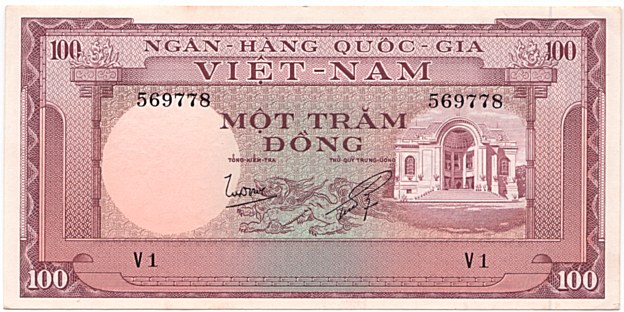
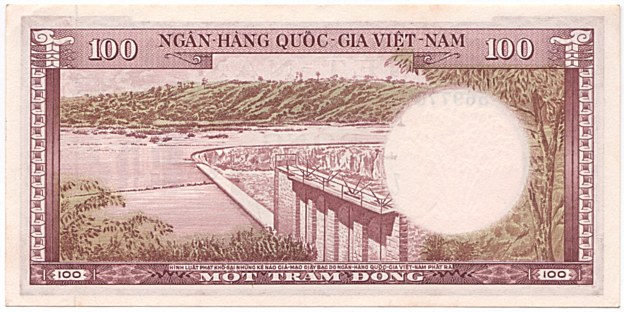
P-18 D-E14 100 Dong 1960
"light hills"
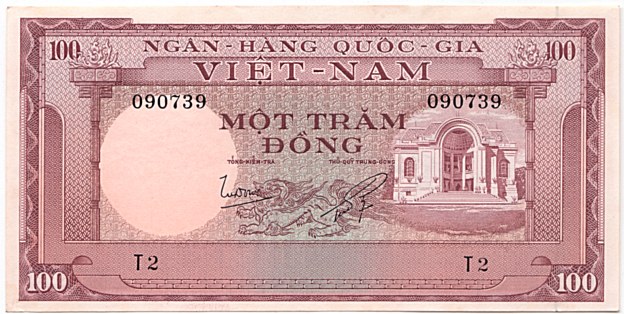
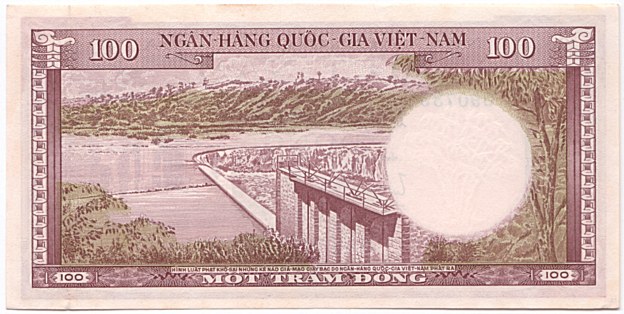
P-18s1 D-S14a 100 Dong 1960 SPECIMEN
"light hills"
Face:
overprint GIẤY MẪU KHÔNG GIÁ TRỊ = Specimen no value;Face/Back:
overprint GIẤY MẪU = Specimen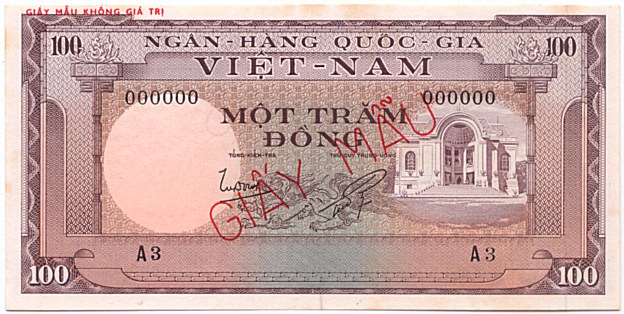
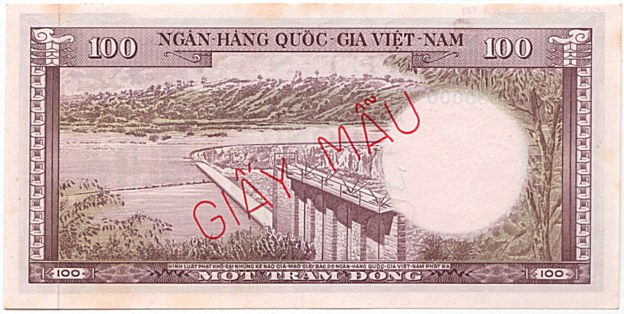
P-18s2 D-S14b 100 Dong 1960 SPECIMEN
"dark hills"
Face/Back:
overprint (in black) GIẤY MẪU = Specimen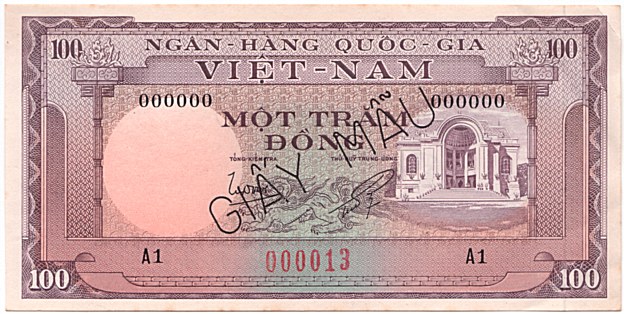
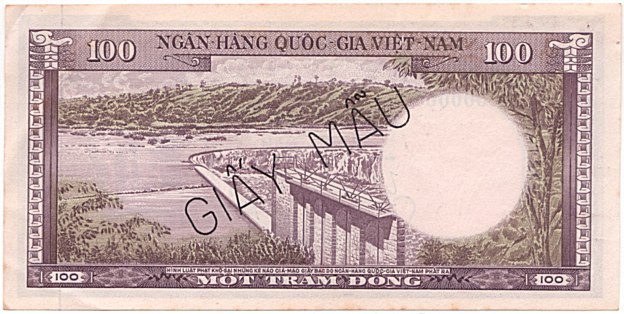
"Dark hills" vs. "light hills"
Collectors use to divide this type into the "dark hills" and the "light hills" subtypes.The difference between these subtypes is caused by vertical shift between the green and brown printing plates.
However, there exist a range of different shifts in both vertical and horizontal directions.
Some collectors also distinguish the notes printed in dark brown and light brown.
I believe that "dark brown" print is the result of oxidation of "light brown" print.
"Dark/light hills" and "dark/light brown" occur in all possible combinations.

"dark hills": green plate is shifted up.

"light hills": green plate is shifted down.

green plate is shifted to the left.
Watermark: Bamboo
